
How Important is Cardio?
Share
How crucial is cardio for MMA?
Cardiovascular endurance is a crucial aspect of mixed martial arts (MMA) training. MMA fighters need to have high levels of stamina and endurance to sustain the intense physical demands of the sport. Cardio training is essential for achieving optimal performance in MMA. Endurance and stamina play a vital role in maintaining energy levels throughout a fight.
If you are an MMA fighter, you need to have a well-rounded training regimen that includes cardio exercises. Cardio training can help you improve your cardiovascular endurance, which is essential for sustaining high levels of activity during a fight. High-intensity cardio workouts like HIIT and circuit training are particularly beneficial for MMA training.
Cardio training can also help you lose weight, increase your lung capacity, and improve your overall fitness. By incorporating cardio exercises into your MMA training, you can improve your performance in the ring and reduce your risk of injury. In the following sections, we will explore the importance of cardio training for MMA fighters and provide some tips on how to incorporate cardio exercises into your training regimen.
The Role of Cardio in MMA
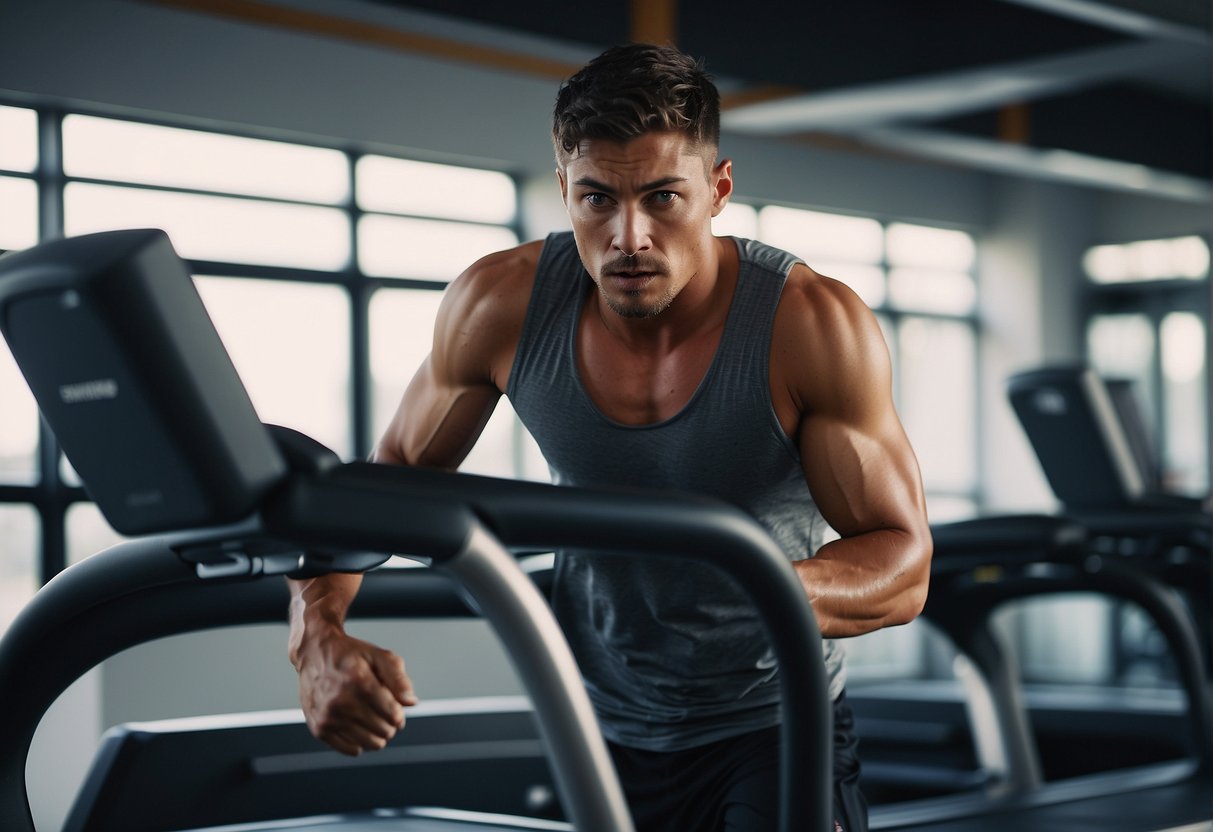
If you're looking to become a successful MMA fighter, you need to have a good understanding of the role that cardiovascular fitness plays in your performance. Cardiovascular fitness is the ability of your body to efficiently transport oxygen and nutrients to your muscles during exercise. In MMA, cardiovascular fitness is essential for maintaining energy levels throughout a fight and for achieving optimal performance.
Understanding Cardiovascular Fitness
Cardiovascular fitness is measured by your body's ability to take in and utilize oxygen during exercise. The better your cardiovascular fitness, the more efficiently your body can transport oxygen and nutrients to your muscles. This means you can train harder and for longer periods of time without getting fatigued.
To improve your cardiovascular fitness for MMA, you need to engage in regular aerobic exercise. Aerobic exercise is any type of exercise that raises your heart rate and increases your breathing rate. Examples of aerobic exercise include running, cycling, and swimming.
It's important to understand that cardio health applies to near enough all physical activities and excercises, from weightlifting to non-combat sports, you'll hear professionals from all corners of the world re-iterate the importance of good cardio.
If you're unsure on where to start, there's no harm in dipping your toe in the water and trying a variety, and there are professionals all across the country who can help. For example, if you're pursuing martial arts, why not enter a few classes to see how you get on, and if you want something a little more bespoke, most coaches will offer a 1-2-1 personal training package, if you're into strength and bodybuilding, do some research locally and find a personal trainer who can help you to reach your goals.
Energy Systems Utilised in MMA
In MMA, there are three energy systems that your body uses to produce energy: the aerobic system, the lactic acid system, and the ATP-PC system. The aerobic system is used for low-intensity activities and is the most important energy system for MMA fighters. The lactic acid system is used for high-intensity activities, such as striking and grappling, while the ATP-PC system is used for short, explosive movements.
To improve your cardiovascular endurance for MMA, you need to engage in regular aerobic exercise. Aerobic exercise helps to improve your body's ability to utilize oxygen and nutrients, which can help to increase your endurance during a fight. Additionally, you should also engage in high-intensity interval training (HIIT) and circuit training to improve your lactic acid system and ATP-PC system.
In conclusion, cardiovascular fitness is essential for achieving optimal performance in MMA. By engaging in regular aerobic exercise and high-intensity interval training, you can improve your cardiovascular endurance and energy systems, which can help to increase your endurance and overall performance in the ring.
Cardio Training Techniques for MMA Fighters
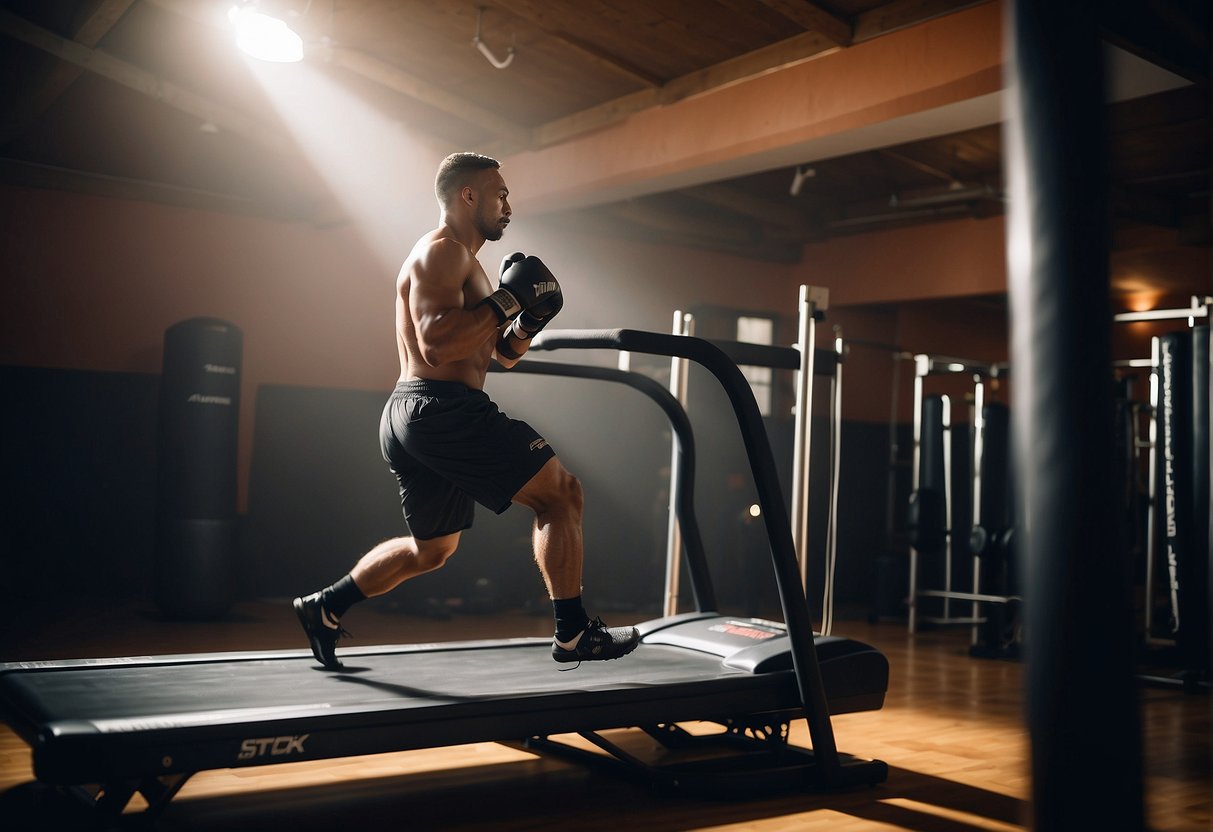
As an MMA fighter, you know that cardio training is essential for improving your performance in the ring. Here are some cardio training techniques that can help you improve your endurance and stamina:
High-Intensity Interval Training (HIIT)
HIIT is a popular cardio training technique that involves short bursts of high-intensity exercise followed by periods of rest or low-intensity exercise. HIIT is an effective way to improve your cardiovascular fitness and burn fat. Some examples of HIIT exercises include sprints, burpees, and jump squats.
Steady-State Cardio
Steady-state cardio is a type of cardio training that involves maintaining a steady pace for an extended period of time. This type of training is effective for improving your endurance and cardiovascular fitness. Examples of steady-state cardio exercises include jogging, cycling, and swimming.
Sport-Specific Cardio Exercises
Sport-specific cardio exercises are exercises that mimic the movements and energy demands of MMA fighting. These exercises are particularly effective for improving your endurance and stamina in the ring. Examples of sport-specific cardio exercises include shadowboxing, sparring, and grappling.
Incorporating these cardio training techniques into your training regimen can help you improve your endurance, stamina, and overall performance in the ring. Remember to start slow and gradually increase the intensity and duration of your cardio training sessions to avoid injury and burnout.
Benefits of Cardio in Combat Sports
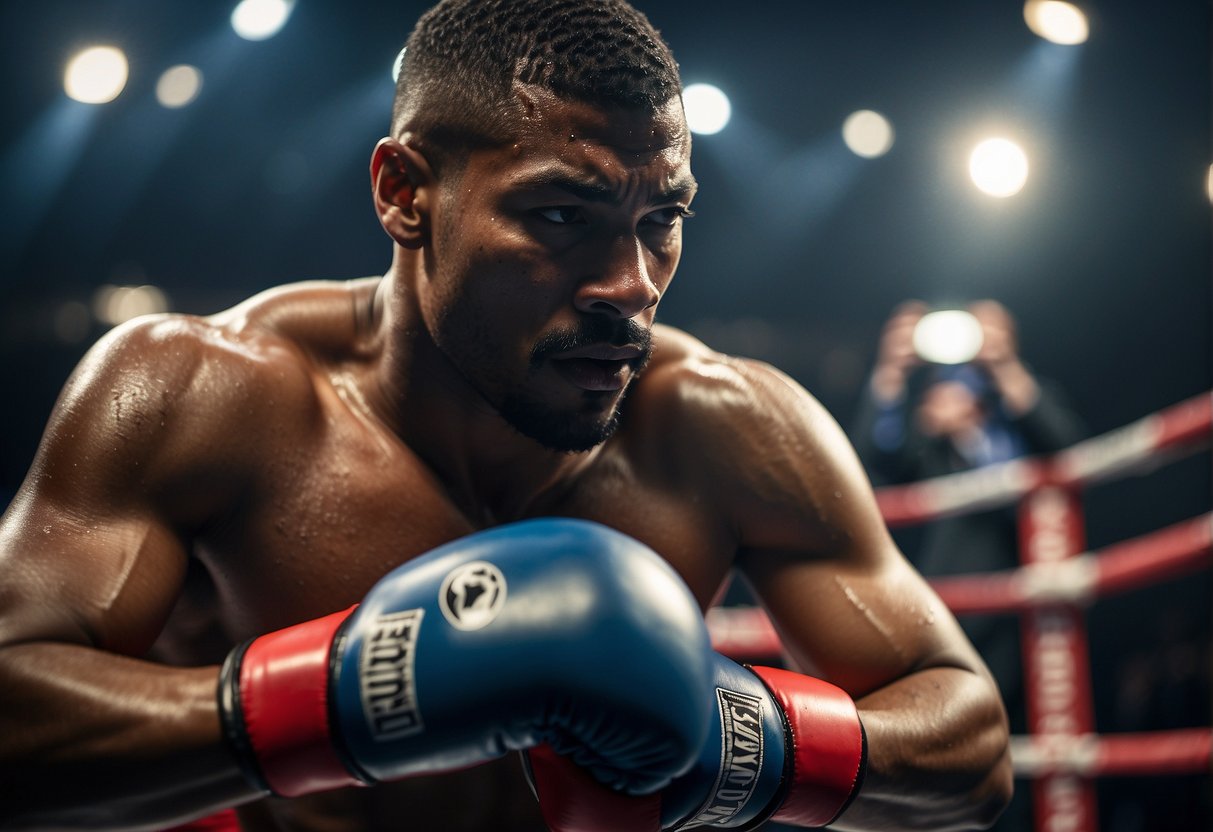
Cardiovascular training is an essential component of MMA training. It offers a wide range of benefits that can help you perform better in the ring. Here are some of the key benefits of cardio in combat sports.
Enhanced Stamina and Endurance
One of the main benefits of cardio in combat sports is that it helps improve your stamina and endurance. This is crucial for those long rounds in the cage or ring. Cardio training helps your heart and lungs work more efficiently, which means you can sustain prolonged efforts without getting tired quickly. This can help you keep up the pace during a fight and outlast your opponent.
Improved Recovery Times
Another benefit of cardio in combat sports is that it helps improve your recovery times. A well-conditioned cardiovascular system helps you recover faster between rounds, giving you a competitive edge. This means you can come back stronger and fresher after a break, which can help you perform better in the later rounds of a fight.
Mental Toughness and Focus
Cardio training also helps improve your mental toughness and focus. It requires discipline and commitment to stick to a regular cardio routine, which can help you develop mental resilience. This can translate into greater focus and concentration during a fight, helping you stay sharp and alert even when you're tired.
In addition to these benefits, cardio training can also help improve your overall health and wellbeing. It can help reduce your risk of heart disease, lower your blood pressure, and improve your mood. So, if you want to perform at your best in the ring, make sure you include cardio training as part of your MMA training regimen.
Incorporating Cardio into MMA Training Regimens
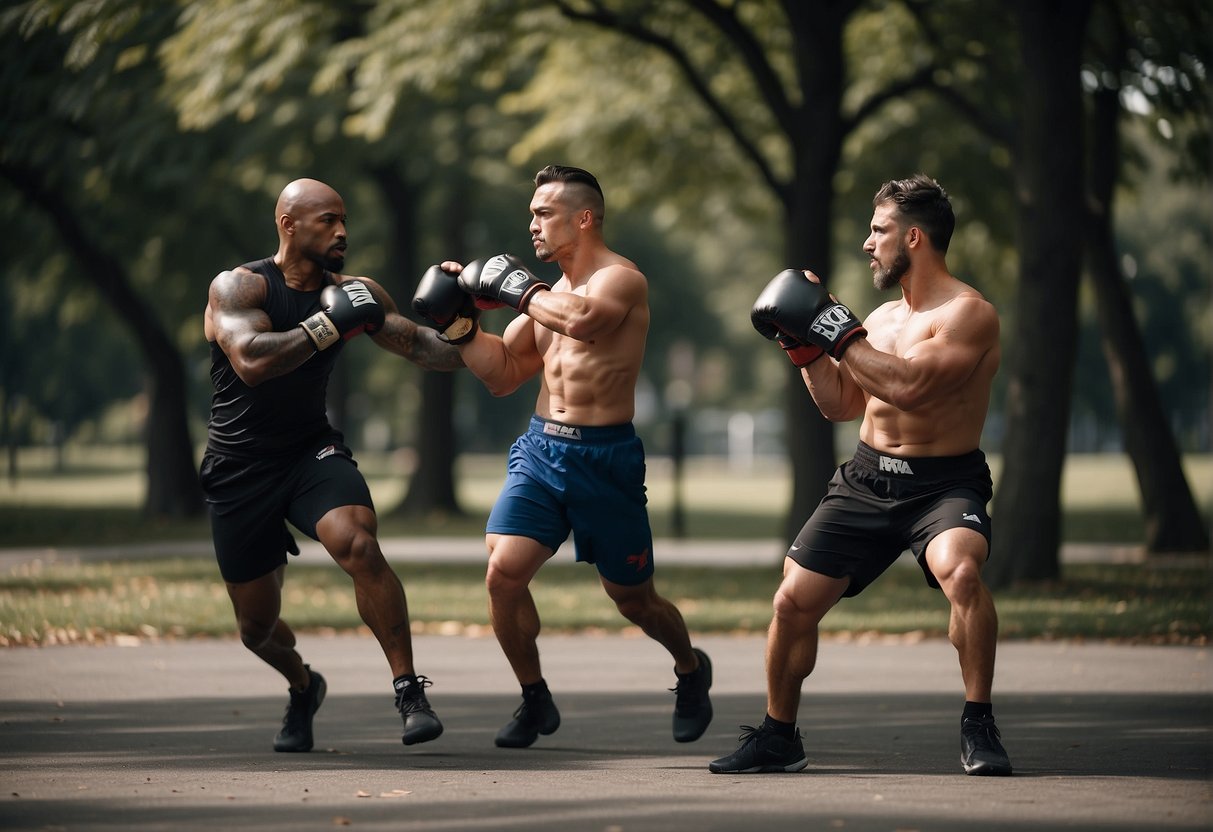
As an MMA fighter, you know that cardio is a critical component of your training regimen. However, it's important to balance your cardio workouts with strength and technique training to ensure that you're developing all aspects of your game.
Balancing Cardio with Strength and Technique Training
While cardio is essential for building endurance and stamina, it's equally important to focus on strength and technique training. Without these elements, you may find yourself struggling to execute moves correctly or lacking the power to make an impact in the ring.
To balance your training, you can incorporate strength and technique workouts into your routine alongside your cardio exercises. For example, you might do strength training on Monday, Wednesday, and Friday, and cardio on Tuesday and Thursday.
Cardio Workouts for MMA Fighters
When it comes to cardio workouts for MMA fighters, there are several options to choose from. High-intensity interval training (HIIT) and circuit training are particularly beneficial for MMA training, as they help to build endurance and stamina while also improving your overall fitness.
Other popular cardio workouts for MMA fighters include running, cycling, and swimming. These exercises can be done on their own or as part of a circuit or HIIT workout.
Recovery and Injury Prevention
Recovery and injury prevention are also essential components of any MMA training regimen. Cardio workouts can be particularly hard on your body, so it's important to take steps to prevent injury and promote muscle recovery.
To prevent injury, make sure to warm up properly before your workouts and cool down afterwards. You can also incorporate stretching and foam rolling into your routine to help reduce inflammation and promote muscle recovery.
Overall, incorporating cardio into your MMA training regimen is essential for building endurance and stamina in the ring. By balancing your cardio workouts with strength and technique training and focusing on recovery and injury prevention, you can ensure that you're developing all aspects of your game and performing at your best.
Measuring Cardio's Impact on MMA Performance
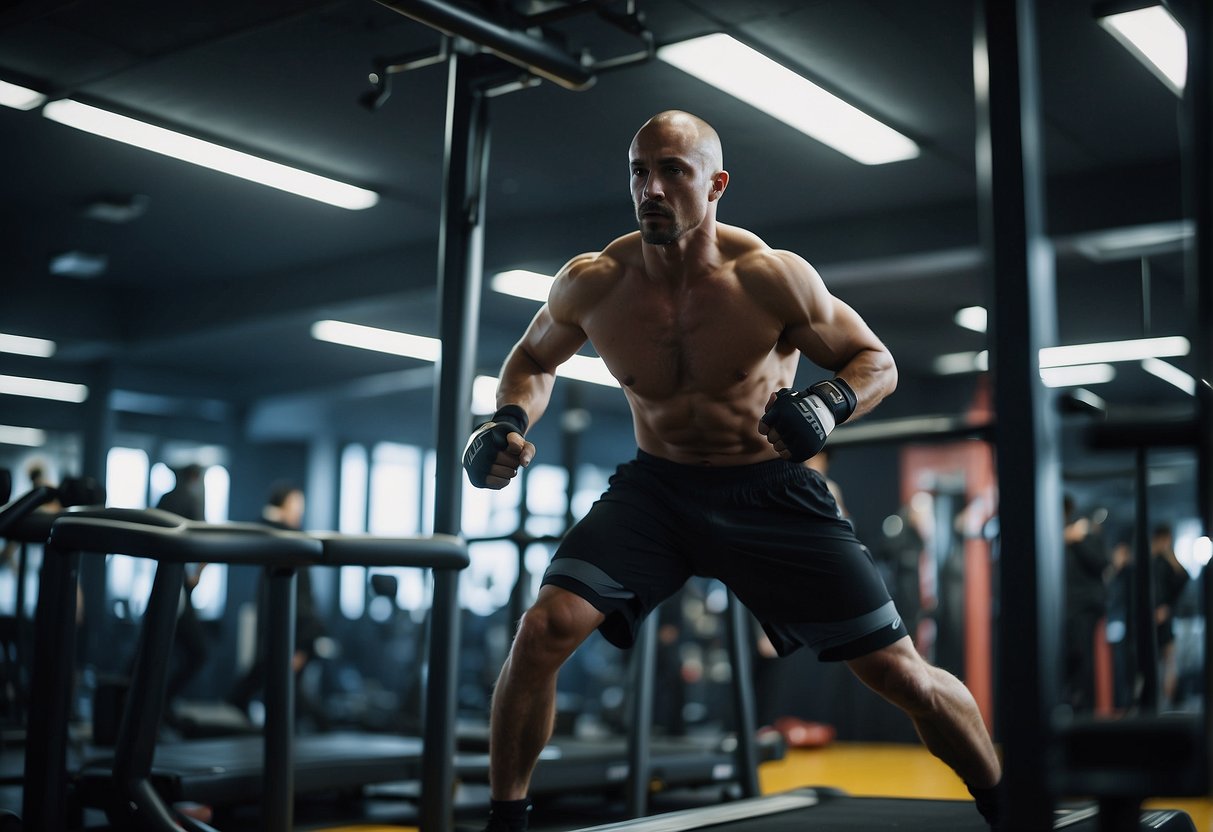
When it comes to MMA, cardio is a crucial component of overall fitness and peak performance. It can make the difference between winning or losing a fight. But how do you measure the impact of cardio on your MMA performance?
Tracking Progress and Adjusting Workouts
To measure the impact of cardio on your MMA performance, it's essential to track your progress. Keep a record of your cardio workouts, including the type of exercise, duration, and intensity. This record will help you identify areas where you need to improve and adjust your workouts accordingly.
For example, if you notice that you're struggling to maintain your endurance during sparring sessions, you may need to increase the duration or intensity of your cardio workouts. You could also try adding different types of cardio exercises to your routine, such as running, cycling, or swimming, to challenge your body in different ways.
The Importance of Rest and Nutrition
While cardio is essential for MMA performance, it's equally important to give your body the rest and nutrition it needs to recover and perform at its best. Adequate sleep and nutrition are critical for physical performance and overall fitness.
Make sure you're getting enough sleep each night, ideally between 7-9 hours, to allow your body to recover from your workouts and prepare for the next day's training. Proper nutrition is also essential for optimal performance, so make sure you're fueling your body with healthy, nutrient-dense foods.
In conclusion, measuring the impact of cardio on your MMA performance requires tracking your progress and adjusting your workouts accordingly. It's also essential to give your body the rest and nutrition it needs to recover and perform at its best. By taking these steps, you can improve your cardio and overall MMA performance.
